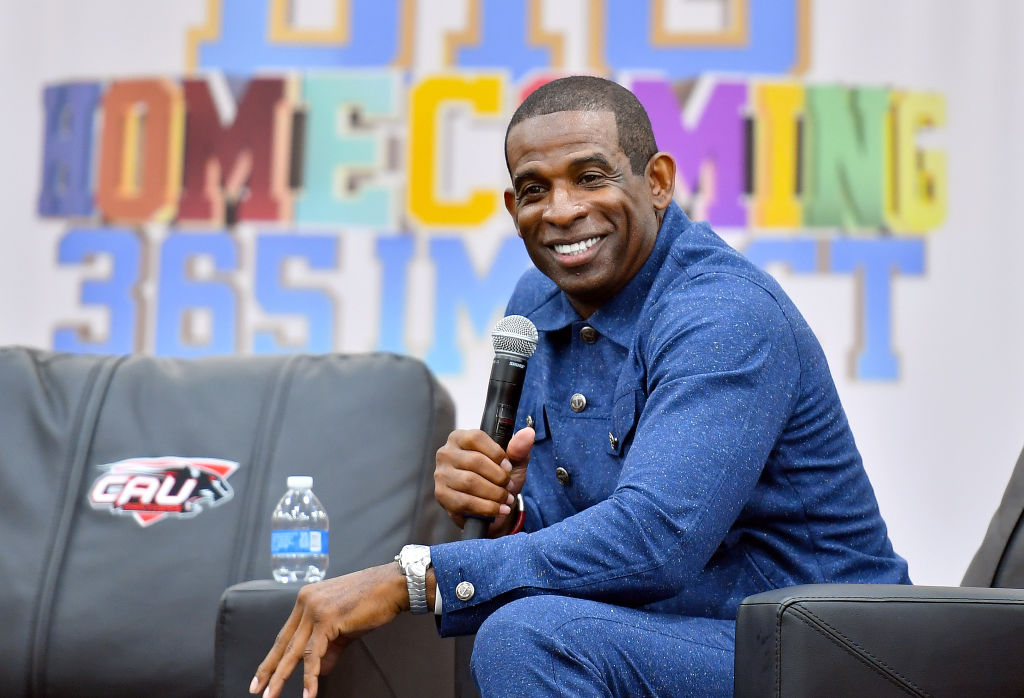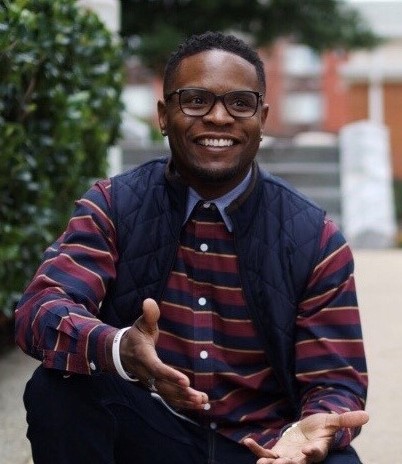Most of the movement surrounding Deion Sanders and his decision to leave Jackson State University to take on the head coaching job at the University of Colorado has come to a stopping point.
With several interviews explaining his movement plus the calm surrounding the debates that consumed social media, it seemed as if everything surrounding this coaching change had settled. However, there was one decision-making official who was still not too sure about Coach Prime’s new move.
Previously AfroTech reported that while Sanders had accepted the role as head coach, the University of Colorado’s athletic director had confirmed that the funds for his job were not yet in place.
As a breakdown, Sanders was set to receive the following:
- $5.5 million in his first season
- $500,000 in base pay
- $1.75 million supplemental income for radio, television, and public appearances
- $1.74 million for promotion and fundraising
- $1.5 million for “development of the student-athlete”
Funds for Sanders’ salary are assumed to be in place as he has started preliminary action with the team, and his role was officially up for debate by the school’s governing body.
According to USA Today, all but one University of Colorado Board of Regents voted to approve Coach Prime’s position.
Jack Kroll was the lone member that decided to vote “no,” noting his opposition had little to do with Sanders as an individual. Still, it was more about his fiduciary responsibility to look out for the school’s best interest.
Kroll listed out his specific opposition reasons with USA Today.
"The business model is not sustainable."
Kroll noted that Sanders’ salary is more than the university has ever paid a football coach. However, the University of Colorado (UC) uses student athletic fees of $28.50 per student each semester to subsidize its athletic department. During the 2019-2020 academic year, the university collected $11.2 million in revenue from student fees.
However, UC coaches are not compensated “through tuition money, taxpayer dollars or the campus general fund, but through athletic department revenues, media rights, and donations.
"Players soon might be classified as employees under the law."
Although Kroll has no real opposition to such a category for student-athletes, he doesn’t fully comprehend how CU would afford a labor expense if the move becomes official.
"Concerned about head injuries from football and their long-term effect on players."
Kroll noted that the university has a complicated and long history of player injuries and death related to head injuries. And while CU has regarded itself as a leader in preventing and treating head injuries, Kroll believes the school could use its resources on more sustainable ventures like residence halls and research labs.
“But I think as a fiduciary for the university, I’ve got to see a bigger picture, and yeah, I get blowback and angry voicemails. I don’t check Twitter. It’s OK. They’re entitled to their thoughts and passions on these things. In the short run, it’s a really exciting time for the university to bring in a guy like Deion Sanders, and people are pumped up about it. Anyone who stands in that way is going to hear about it,” Kroll told USA Today.
In addition to the reasons above, Kroll’s “personal regret” also played a part in his vote.
In 2017, he voted in favor of a contract extension for former CU Head Coach Mike MacIntyre, who was eventually fired a year later for poor on-field performance.
“CU fired MacIntyre in November 2018 after his team’s on-field performance collapsed with six straight losses. CU ended up paying $7.2 million to buy out his contract,” USA Today reports.


